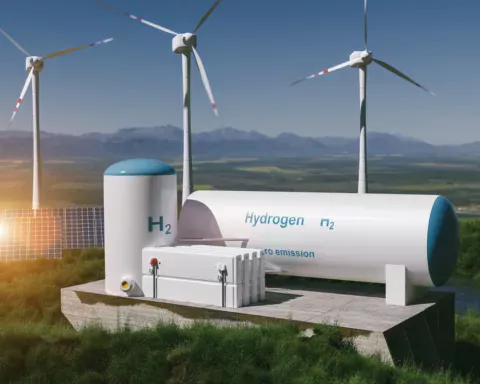The Action Plan is devised against the background that, for the first time, EU funding presents opportunities to reinforce European innovation by exploring and exploiting the disruptive potential of technologies at the interface between defence, space and civil uses, such as cloud, processors, cyber, quantum and artificial intelligence.
Margrethe Vestager, Executive Vice-President for ‘a Europe fit for the Digital Age’, said: “With the European Defence Fund we have a strong potential for synergies between innovation in space, defence and civil research & innovation. We need this for a number of critical technologies. This action plan is a systematic and methodological approach to synergies in critical technologies across the three worlds. The idea is for innovations to systematically reach multiple uses by design. And to allow tapping into the huge innovation potential of researchers and start-ups.”
Thierry Breton, Commissioner for Internal Market, said: “Making the most of the European Defence Fund and ensuring strong synergies between defence, space and civil technologies will generate disruptive innovations and allow Europe to remain a global standard setter. It will also reduce our dependencies in critical technologies and boost the industrial leadership we need to recover from the crisis.”
The main goals of the Action Plan are to:
- Enhance the complementarity between relevant EU programmes and instruments covering research, development and deployment to increase efficiency of investments and effectiveness of results (the synergies);
- Promote that EU funding for research and development, including on defence and space, has economic and technological dividends for European citizens (the spin-offs) and;
- Facilitate the use of civil industry research achievements and of civil-driven innovation in European defence cooperation projects (the spin-ins).
With these goals in mind, the Commission announces eleven targeted actions that focus on the interplay between civil, defence and space industries. In particular, they:
- Create a framework that enhances synergies and cross-fertilisation among all relevant EU programmes and instruments, for example in the field of digital, cloud and processors;
- Frame in a systematic and consistent way the development of critical technologies with first the identification of critical technologies and future capability requirements and then the development of technology roadmaps. Finally, the launch of flagship projects aims to reduce dependencies, foster standardisation and interoperability, stimulate cross-border cooperation, create new value chains and answer to societal and EU strategic needs;
- Support, throughout the Union, innovation from start-ups, Small and Medium Businesses (SMEs) and Research and Technology Organisations (RTOs), by facilitating their access to new opportunities, including by setting up an ‘innovation incubator’ network;
- Prepare for the launch of three flagship projects with the potential to become game changers: drone technologies, enhancing the competitiveness of EU industry in this critical technology area with a strong defence dimension, a space-based secure connectivity that should provide for a resilient connectivity system and high-speed connectivity for everyone in Europe based on quantum encryption; and space traffic management, required to avoid collision events that may result from the proliferation of satellites and space debris, while ensuring an autonomous access to space.
While the remit of this Action Plan is limited to EU programmes and instruments, it may also trigger similar positive synergetic effect at national level due to co-funding by Member states of EU projects. The transatlantic partnership and cooperation with other like-minded countries can support EU efforts in this area.
Background
Upon taking office, President von der Leyen tasked her Commission to “ensure cross-fertilisation between civil, defence and space industries” and “focus on improving the crucial link between space and defence and security”. To this end, in March 2020, the Industrial Strategy announced “an Action Plan on synergies between civil, defence and space industries, including at the level of programmes, technologies, innovation and start-ups”.
The Council of the EU, in its Conclusions on Security and Defence of 17 June 2020 “welcomed the call for more synergies between civil, and defence industries, including space, in EU programmes, while respecting the different natures and legal bases of respective EU programmes and initiatives, including the civilian nature of European space programmes, with a view to making more effective use of resources and technologies and create economies of scale.”
At a time when Europe faces unprecedented global competition in a changing geo-political context and new opportunities arise from the emergence of rapidly evolving technologies and new business models, the increased size of investments in technologies of civil, defence or space application can help Europe maintain its industrial base, respond to the geopolitical competition and strengthen its technological sovereignty.






